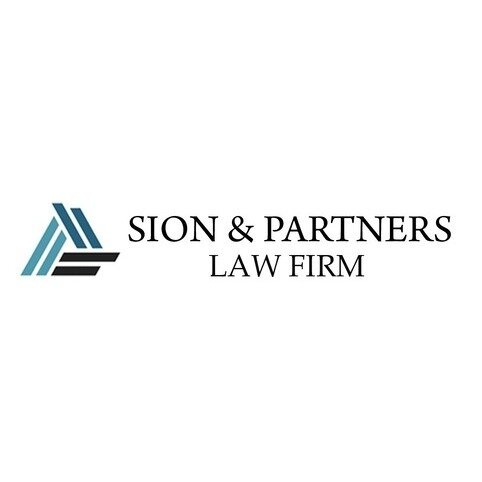Best Tax Increment Financing Lawyers in Kazakhstan
Share your needs with us, get contacted by law firms.
Free. Takes 2 min.
List of the best lawyers in Kazakhstan, Kazakhstan
About Tax Increment Financing Law in Kazakhstan, Kazakhstan
Tax Increment Financing (TIF) in Kazakhstan is a financial tool used by local governments to stimulate economic growth and redevelopment in specific areas. By capturing future tax increments that result from increased property values, local authorities can fund infrastructure and public improvement projects without raising taxes. The concept of TIF is relatively new in Kazakhstan, emerging as part of broader economic reforms aimed at attracting investments and addressing urban development challenges. The legal framework governing TIF is complex and requires detailed understanding to effectively navigate.
Why You May Need a Lawyer
Engaging a lawyer can be crucial in several situations concerning Tax Increment Financing in Kazakhstan:
- Understanding the Legal Framework: TIF involves intricate legal and financial principles that require professional interpretation, especially for developers and investors.
- Drafting and Reviewing Contracts: Legal counsel ensures that all agreements comply with local laws and protect the interests of all parties involved.
- Negotiating with Authorities: Approaching local government bodies to propose or negotiate TIF agreements can be challenging without legal expertise.
- Compliance and Dispute Resolution: Lawyers can help in ensuring regulatory compliance and resolving any legal disputes that arise during the execution of a TIF project.
- Liability Assessment and Mitigation: A lawyer can help assess potential liabilities and craft strategies to mitigate risks associated with TIF projects.
Local Laws Overview
The key aspects of local laws relevant to Tax Increment Financing in Kazakhstan include:
- Legal Provisions: Kazakhstan’s legislation outlines the procedure for establishing TIF districts, defining eligible areas and types of developments.
- Taxation and Revenue Allocation: Local laws specify how future tax revenues are allocated and used to finance public infrastructure and services within the TIF district.
- Public-Private Partnerships (PPP): Regulations on PPPs frequently intersect with TIF projects, necessitating clear legal agreements between private investors and government entities.
- Environmental and Zoning Laws: TIF projects must adhere to local environmental standards and zoning laws, impacting project planning and approval.
- Reporting and Accountability: Legal frameworks often require transparent reporting and accountability measures for TIF initiatives, ensuring funds are used as intended.
Frequently Asked Questions
What is Tax Increment Financing (TIF)?
Tax Increment Financing is a method that captures future tax increases resulting from rising property values in a designated area to pay for public improvement projects.
How is TIF used in Kazakhstan?
In Kazakhstan, TIF is primarily used to promote urban development, infrastructure improvements, and economic growth in underdeveloped or economically stagnant areas.
Who can initiate a TIF project?
Local governments typically initiate TIF projects, but private developers and investors can propose projects that municipalities may consider for TIF financing.
What types of projects are eligible for TIF?
Eligible projects often include infrastructure enhancements, transportation systems, public facilities, and economic development initiatives.
How does TIF affect local tax rates?
TIF does not ordinarily increase local tax rates. Instead, it reallocates the increases in tax revenues from improved property values to finance the project.
What are the risks associated with TIF?
Potential risks include project financing shortfalls if property values do not increase as anticipated and the misallocation of funds causing public discontent.
How is the success of a TIF project measured?
Success is evaluated based on improvements in the targeted area's economic conditions, increases in property values, and the adequacy of public infrastructure and services.
Can TIF funding be used for private projects?
While TIF can aid private projects, the funding is generally dedicated to public infrastructure that supports the private development.
What legal protections should be considered in TIF agreements?
Ensure agreements include clear terms on risk sharing, project deliverables, compliance with local regulations, and dispute resolution mechanisms.
How long does a TIF district last?
The duration of a TIF district can vary but generally lasts until the projects are completed, the debt is paid off, or a set number of years, as defined by local laws.
Additional Resources
For further information and assistance, the following resources can be useful:
- Ministry of National Economy of the Republic of Kazakhstan: The central government body overseeing economic development and urban planning initiatives.
- Local Municipal Development Agencies: Provide details on current and future TIF projects and opportunities for collaboration.
- Legal Aid Centers: Offer advice and services in understanding and navigating local tax and finance laws.
Next Steps
If you need legal assistance in matters related to Tax Increment Financing, consider the following steps:
- Research Legal Firms: Seek out law firms in Kazakhstan specializing in tax law, real estate, and public finance for initial consultations.
- Schedule Consultations: Meet with potential lawyers to discuss your specific needs and assess their expertise in TIF-related matters.
- Gather Relevant Documents: Compile project proposals, financial records, and any prior correspondence with local authorities to facilitate discussions with your lawyer.
- Understand Fee Structures: Inquire about billing practices and ensure you fully understand fee arrangements and potential costs.
Engaging a knowledgeable lawyer can simplify navigating the complexities of Tax Increment Financing and help safeguard your interests throughout the process.
Lawzana helps you find the best lawyers and law firms in Kazakhstan through a curated and pre-screened list of qualified legal professionals. Our platform offers rankings and detailed profiles of attorneys and law firms, allowing you to compare based on practice areas, including Tax Increment Financing, experience, and client feedback.
Each profile includes a description of the firm's areas of practice, client reviews, team members and partners, year of establishment, spoken languages, office locations, contact information, social media presence, and any published articles or resources. Most firms on our platform speak English and are experienced in both local and international legal matters.
Get a quote from top-rated law firms in Kazakhstan, Kazakhstan — quickly, securely, and without unnecessary hassle.
Disclaimer:
The information provided on this page is for general informational purposes only and does not constitute legal advice. While we strive to ensure the accuracy and relevance of the content, legal information may change over time, and interpretations of the law can vary. You should always consult with a qualified legal professional for advice specific to your situation.
We disclaim all liability for actions taken or not taken based on the content of this page. If you believe any information is incorrect or outdated, please contact us, and we will review and update it where appropriate.









